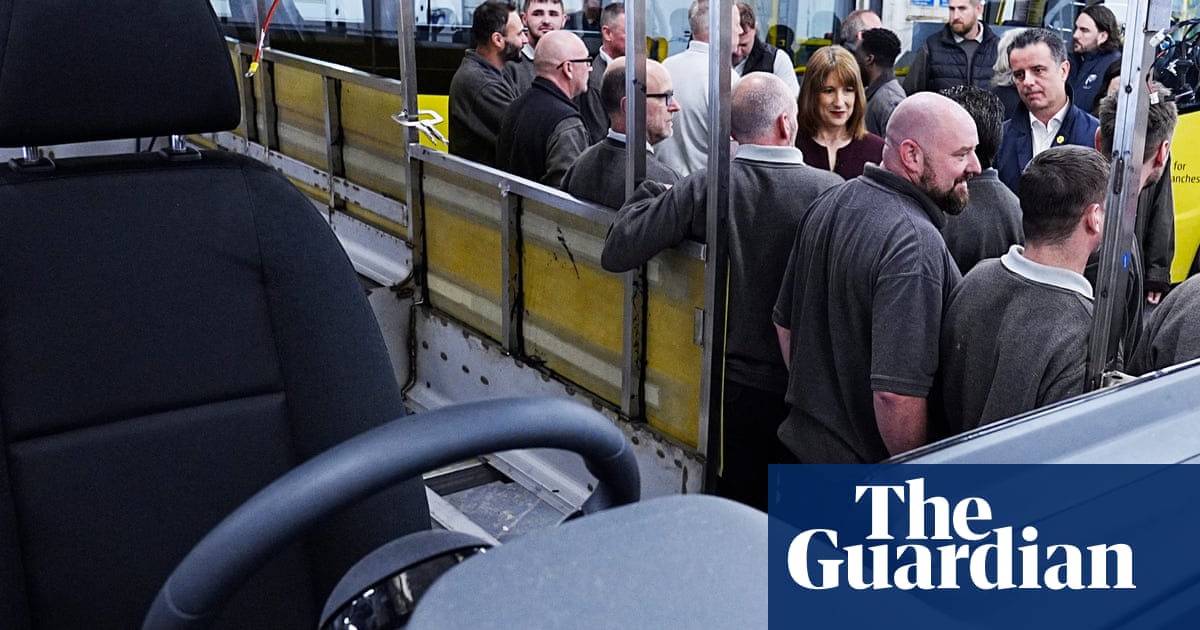“Red wall” Labour MPs are urgingRachel Reevesto fund grassroots “social infrastructure” such as parks, community centres and libraries, as well as high-profile transport projects, to ensure voters in left-behind areas can benefit from growth.
The Independent Commission on Neighbourhoods (Icon), chaired by the Labour peer Hilary Armstrong and supported by a string of backbenchers, has identified 613 “mission critical” local areas.
It is calling on the government to pilot community-led regeneration schemes in places like these – which are defined as those furthest away from contributing to Labour’s targets, including on growth and social mobility.
Such neighbourhoods are characterised by higher unemployment, “dramatically higher” welfare spending, and 40% lower productivity than the national average, Icon finds – and many voted Reform in last month’s local elections.
Ahead of next week’s spending review, Reeves trumpeted plans for an additional £113bn in capital spending over the next five years,including £15bn on transport projectsoutside London and the south-east.
The chancellor’s rewritten fiscal rules allow for a significant expansion in borrowing to fund such investment, which Reeves has called“the lifeblood of growth”.
But the commission argues many projects that would be classified as day-to-day spending, which is more tightly constrained under Reeves’s rules, are essential for improving long-neglected local areas.
“Buses and trams are important, but they’re not the whole picture,” said Armstrong, who was the Labour MP for North West Durham from 1987 to 2010. “The problem is that big infrastructure projects, like, you know, trains, bridges, roads, take a long time, and people don’t really feel that they’re in control of what’s happening.”
She added: “Unless people are getting the skills, feel confident about who they are and what their opportunities are and actually believe that they are able to build real opportunities for their kids, for their families, for their communities, then they’re not going to be doing the work that will add to the growth of the economy.”
Jake Richards, the MP for Rother Valley, said: “Transport and other infrastructure projects are really important, but we must not overlook the importance of social infrastructure, which will be critical to the government’s missions. Sure Start is perhaps the best example of this, bringing remarkable benefits for millions of families in our most disadvantaged communities.”
Armstrong cited a project in Wolverhampton the commission recently visited, which employed a chef to cater for community lunches. “They came together and they chatted and they talked and they set things up coming out of it,” she said.
She called on the Treasury to consider social infrastructure when judging how funds should be disbursed.
Sign up toBusiness Today
Get set for the working day – we'll point you to all the business news and analysis you need every morning
after newsletter promotion
“It’s about, how do you get a sense of pride in where you come from, where you live, neighbours that you can talk to because you share a meal with them once a week, or something – it’s actually enabling people to get to know each other a bit better and be more confident in each other. That will absolutely transform people’s lives.”
Chris Webb, the MP for Blackpool South, said: “Towns like Blackpool, the most deprived inEngland, are poorly served by traditional economic infrastructure, which tends to benefit the big cities more than isolated coastal towns. This government must draw on our party’s proud history of rebuilding communities to directly invest in disadvantaged neighbourhoods.”
The North Durham MP, Luke Akehurst, said: “Investing in social infrastructure such as community centres, parks and libraries, would start to plug my constituency back into the national economy, which it has been excluded from for far too long.”
Icon is funded by theLocal Trust, which was set up to implement Big Local, a national lottery-funded project due to end next year, that gave more than 150 neighbourhoods more than £1m each to spend over a decade on locally led regeneration and fostering community connections.
Analysis of Big Local by Icon suggests these areas saw greater declines in crime and smaller increases in economic inactivity than similar neighbourhoods outside the scheme.
